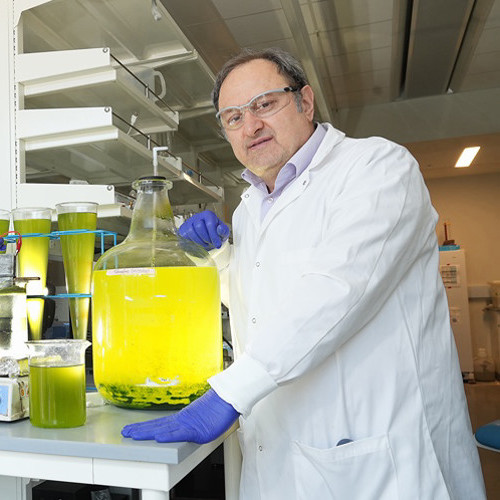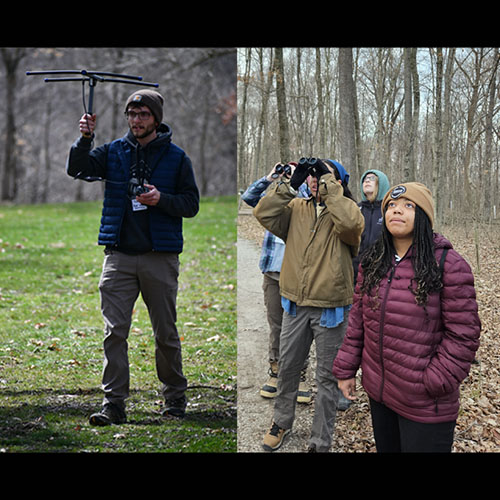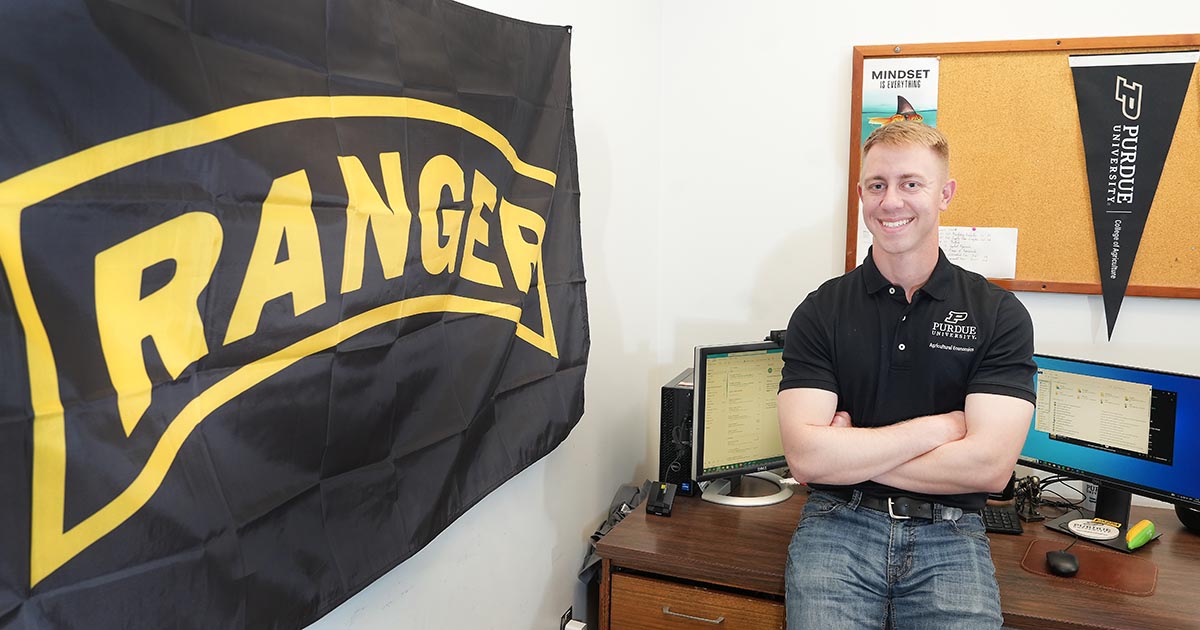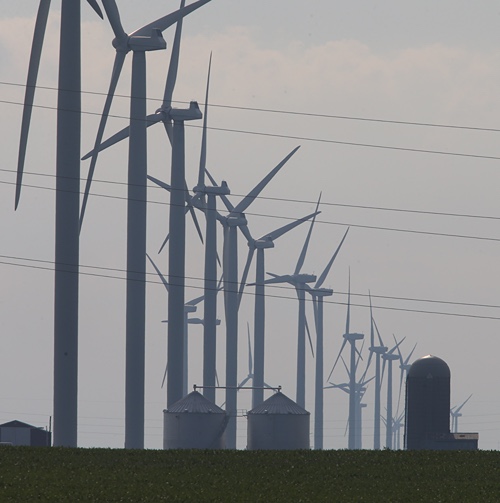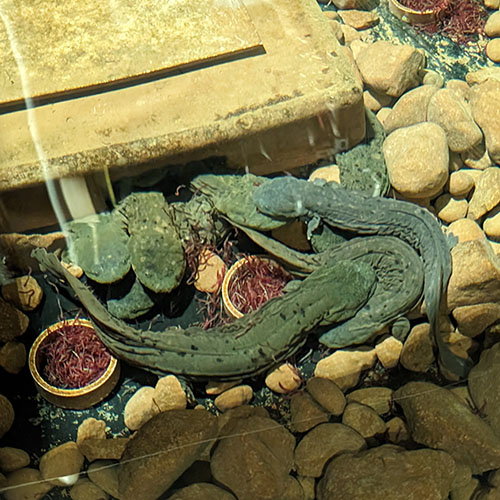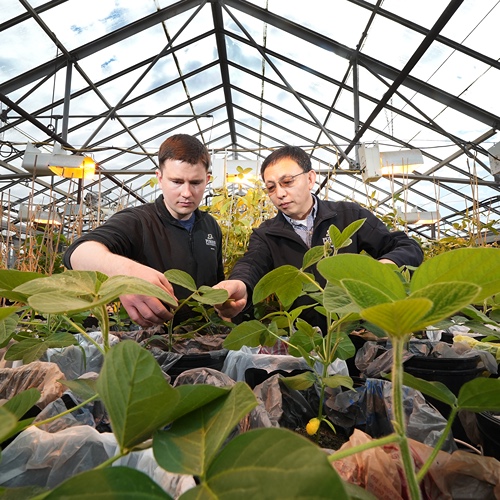Editor’s Note: This story was written when Catie Hauser was a senior. She earned her bachelor’s degree in animal sciences: pre-veterinary medicine in 2023.
Catie Hauser carefully guided a suture through a reptile's skin. Hovering behind her, she could sense a young camper who wanted a closer look and was eager to learn the next sewing technique. Hauser stepped back to admire her work, but her gaze was drawn to the camper who was shifting and smiling, excited to learn from their new camp counselor.
That was just one of many experiences that Hauser, a senior animal sciences: pre-veterinary medicine major from Tell City, Indiana, has collected during diverse internship experiences. She said each one has been an opportunity to give back to her community and grow in her industry.
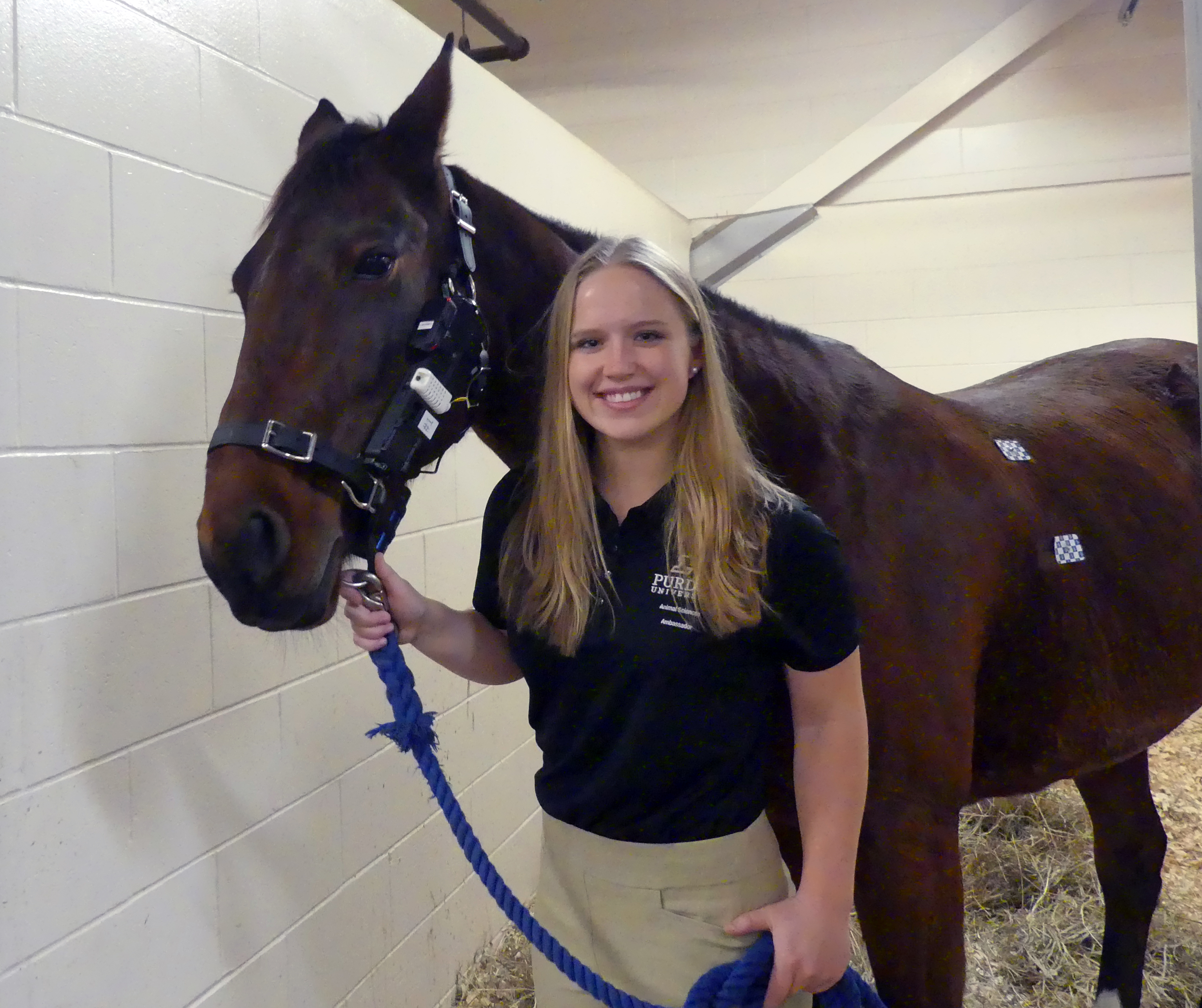 Among her internship experiences, Catie Hauser, helped research equine asthma and worked closely with researchers and racehorses. The senior animal sciences: pre-veterinary medicine major from Tell City, Indiana, says her internships have helped her learn and grow. Photo by Melanie Hasler.
Among her internship experiences, Catie Hauser, helped research equine asthma and worked closely with researchers and racehorses. The senior animal sciences: pre-veterinary medicine major from Tell City, Indiana, says her internships have helped her learn and grow. Photo by Melanie Hasler. Hauser’s experience with the young camper happened when she was a camp counselor for a junior veterinary academy in Chapel Hill, North Carolina. The camp emphasizes the importance of agriculture, veterinary care, and anatomy lessons on different species. Hasuer recognized her potential for growth and the potential to help the campers, aged 9 to 14, grow, too.
“Junior vet academy was challenging in the best way,” Hauser said. “Working with kids was very energizing and I was so excited to make a positive impact on these kids’ lives and give them applications to use in the future.”
That was just one of an eclectic mix of internship experiences that Hauser said has helped her pursue her career goals and push her potential.
It turns out the junior vet camp wasn’t Hauser’s only experience working with youth. When she interned for Purdue Extension, she helped 4-H participants. That was especially challenging because of the COVID pandemic restrictions that were in place at the time.
“The extension office gave me all kinds of projects to help the 4-H students get through the county fair during COVID,” Hauser said. “I was able to work closely with the livestock kids and it reassured me that I was giving back to my community.”
Giving back is important to Hauser. She grew up surrounded by livestock and was involved in her local 4-H. That contributed to her passion for sharing the same opportunities to 4-Hers that she had. When she participated in 4-H, Hauser said she looked up to the 10-year 4-Hers and alumni. She knew she wanted to make a difference just like they did.
Hauser helped students by creating showcases for all livestock animals and award ceremonies, she created curricula for animal science day camps for 4-H, and created a YouTube with tutorial videos for livestock kids.
With internships, Hauser explained that it is critical for college students to work in areas that relate to their majors. That way, you can get an inside look at your industry. Hauser considered this for all three of her internships. But while the first two focused on youth and outreach, her other was all about science and research.
Hauser closely studied the work of Laurent Couëtil, a professor in Purdue’s College of Veterinary Medicine, who specializes in equine medicine
“I was a total fangirl for this professor and the work he did. After attending his equine wellness forum, I knew I had to take a shot at working with him,” Hauser said.
She secured an internship with Couëtil and worked at the Horseshoe racetrack in Shelbyville, Indiana. She helped research equine asthma. Throughout the summer she took readings of dust levels in the barn, helped restrain renowned racehorses for examinations, and practiced lab work to read horse respiratory levels.
“This was a once-in-a-lifetime opportunity. After reaching out to more than 20 different researchers, I was so excited to hear a reply from Professor Couëtil.” Hauser exclaimed. “This experience made me truly realize that my passions lie within the livestock industry.”
Hauser said her internships are a valuable and enlightening part of the college experience.
“I advise any future university student to be curious, authentic, and open-minded,” she said. “Take advantage of the diverse environment Purdue has to offer. You never know what is in store for you.”Find out more
Melanie Hasler is a senior agricultural communication major from Hope, Indiana
